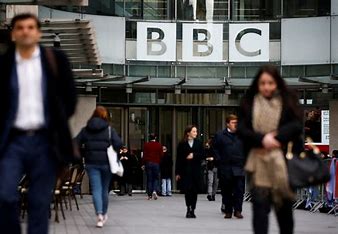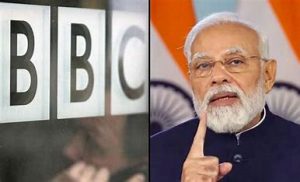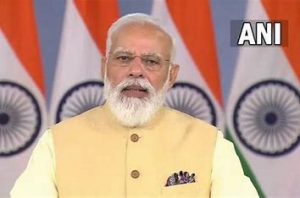
The people of India leave no stone unturned to pay heed to issues, especially when they are related to their Prime Minister in position. Since the BBC documentary series India: The Modi question has been making headlines, UK PM Rishi Sunak too defended the PM when allegations rose around him.

External affairs minister Arindam Bagchi was cited saying that the documentary created by BBC was ” a propaganda piece designed to push a particular discredited narrative”. The documentary is based on the Gujarat Riots of 2002, wherein severe tensions rose along communal lines, with rapid rapes of Muslim women and the involvement of the then CM of Gujarat, Narendra Modi.
Eventually, allegations have been put upon the BBC as propaganda material and biased. Yet according to its first-ever statement, it has been rigorously researched and addresses certain significant socio-political issues.
Within no time of release, and the eruption of the controversies, the Central government asked the social media giants like Youtube and Twitter to ban it from streaming on any platform. Almost around 50 tweets relating to the incident have been banned.
According to the latest reports, the All India Bar association has written to Home Minister Amit Shah to do a 360-degree probe on this issue that just does not seem to get over controversies. These alleged aspersions arrive with the narrative of bearing the perils of imperialism in the blood of the whites which seems to not get over. Even the credibility of BBC’s content has been judgmental about the efficacy of the Supreme Court.

Analysis and Impact
There can be two narratives that can be put forth:
Making the documentary accessible to the people of both nations equally. A country that has appointed its PM ought to have a basic sense of judgment and holistic comprehension of interpreting content sans being biased. Not speaking specifically, it would also reflect upon the political influences when and where. Exercising the controversies more than the actual content will create a section of information elites and the marginalized which will not prove justice to the mass as a whole.
Secondly, the power of non-biased and empirically researched journalism ought not to be undermined. In case, the documentary poses something vulgar, or propaganda based it can be questioned in front of the eyes of the law.
